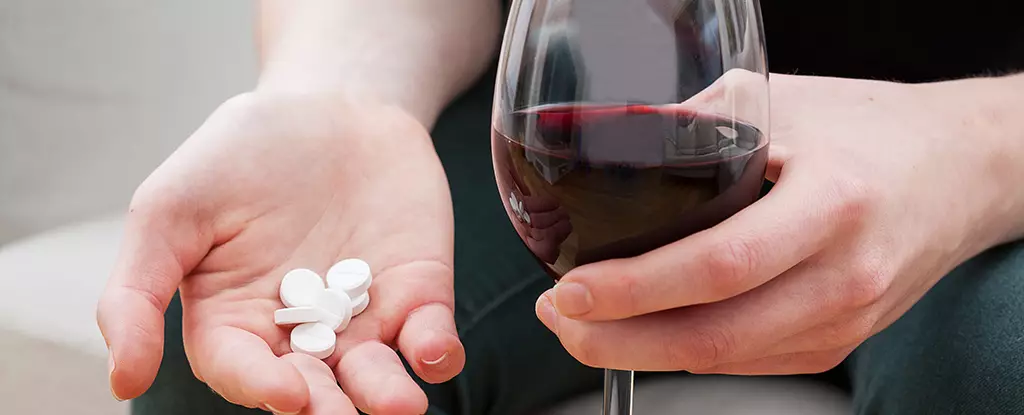Alcohol has a notorious reputation for lowering one’s social inhibitions and leading individuals to engage in behaviors they normally wouldn’t. However, what many people fail to recognize is the potential danger that arises when alcohol is mixed with certain medications. Whether prescription or over-the-counter, the combination of alcohol and medication can enhance the effects of both substances, putting individuals at risk for a variety of negative outcomes.
Unforeseen Consequences
The chemicals in our brains work diligently to maintain a delicate balance between excitation and inhibition. When that balance is disrupted, the consequences can be severe. Too much excitation can result in convulsions, while an excess of inhibition can lead to sedation and depression. Alcohol, in particular, works by increasing the amount of inhibition in the brain, causing a sense of relaxation and a decrease in social inhibitions. However, excessive alcohol consumption can impair muscle coordination, cause slurred speech, dizziness, memory loss, and even lead to unconsciousness.
The Interaction between Alcohol and Medication
When alcohol is mixed with medications, the effects can be unpredictable. Alcohol can interfere with a medication’s effectiveness in the body or its absorption in the stomach. If a medication already has side effects similar to alcohol intoxication, combining it with alcohol can intensify those effects. However, the side effects don’t always mirror those of alcohol consumption. For instance, mixing alcohol with ADHD medication, such as Ritalin, can increase its impact on the heart, raising the risk of a heart attack. Combining alcohol with ibuprofen can also result in a higher likelihood of stomach upsets and bleeding.
Alcohol can additionally impact the breakdown of certain medications, reducing their effectiveness. This is the case for opioids, cannabis, seizures, and even Ritalin. Moreover, alcohol can alter the metabolic pathway of drugs like paracetamol, potentially generating toxic byproducts that can lead to serious liver complications.
Dangers and Potential Fatalities
The consequences of mixing alcohol and medication can be fatal. Combining substances that act on the brain with alcohol can impair cognitive and motor functions, making activities like driving or operating heavy machinery extremely hazardous. Both prescription and over-the-counter medications can pose risks when consumed alongside alcohol.
The effects of combining alcohol and medication are not uniform across all individuals. Those who are most at risk for interactions include older people, women, and individuals with smaller body sizes. Older individuals metabolize medications more slowly, often take multiple medications simultaneously, and are more sensitive to the effects of medication on the brain, resulting in an increased likelihood of experiencing side effects such as dizziness and falls. Women and individuals with small body sizes tend to have higher blood alcohol concentrations when consuming the same amount of alcohol as those with larger bodies, as there is less water in their systems to dilute the alcohol.
Recognizing the Warnings
No one should ignore the warning signs. Medications that are unsafe to combine with alcohol should prominently display warnings on their packaging. Pharmacists also play a crucial role in counseling patients on the potential risks of mixing alcohol with their prescribed medications. Common prescription medications that interact with alcohol include benzodiazepines, opioids, antidepressants, antipsychotics, and certain antibiotics like metronidazole and tinidazole. However, it’s not just prescription medications that carry risks. Over-the-counter medications for sleep, travel sickness, cold and flu, allergies, and pain relief can also have adverse interactions with alcohol.
If you’re considering consuming alcohol while taking medication, it’s imperative to consult your doctor or pharmacist beforehand. They can provide the necessary guidance and information to ensure your safety and well-being.
When it comes to combining alcohol and medication, it is crucial to be aware of the potential risks and exercise caution. Putting your health and safety first should always take precedence.



Leave a Reply